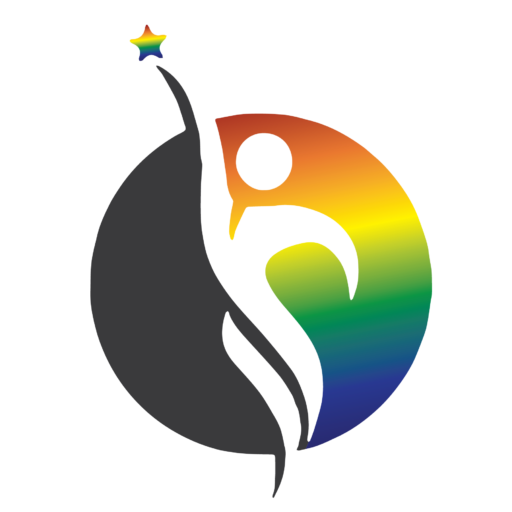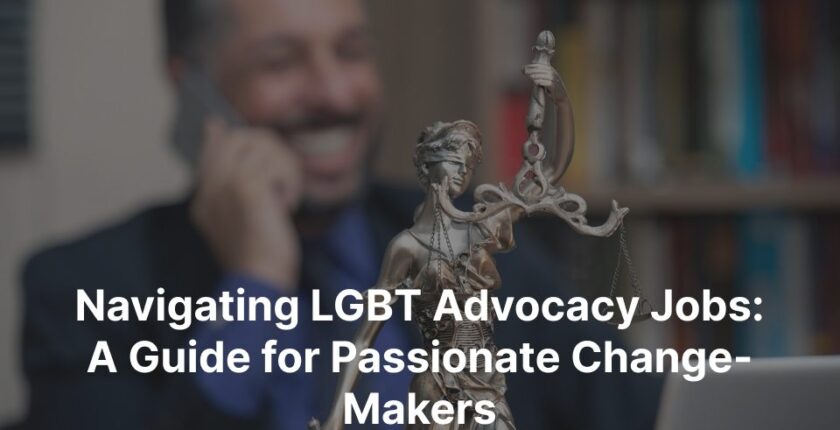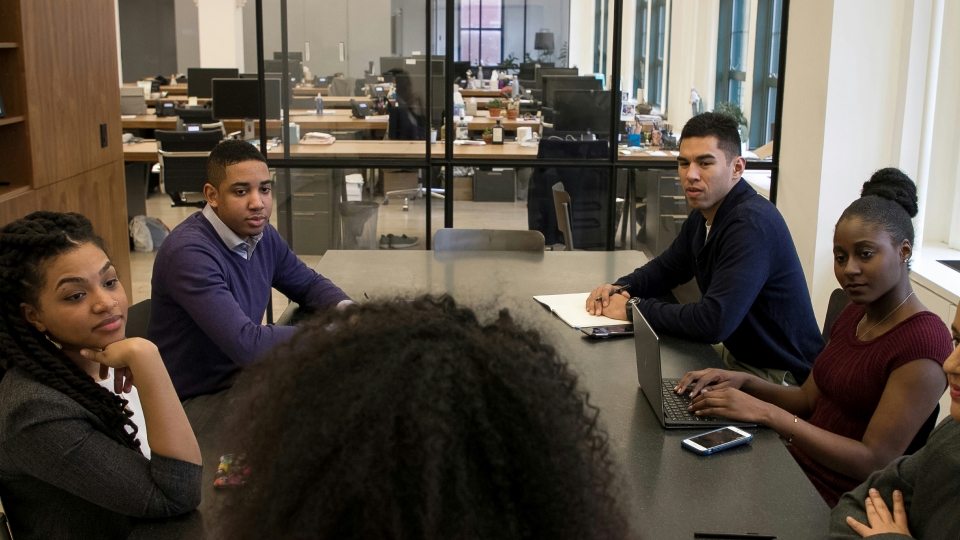Navigating LGBT Advocacy Jobs: A Guide for Passionate Change-Makers
If you’re passionate about championing the rights of marginalized communities, you’ve likely wondered how to turn that passion into a fulfilling career. For many LGBT individuals and allies alike, advocacy jobs offer a unique chance to transform convictions into tangible action.
Whether it’s lobbying for policy change, organizing grassroots campaigns, or providing direct community support, LGBT advocacy roles can be as diverse as the community itself. But how do you even start? Where do you find these roles, and what skills do you need to succeed? Is there a specific career path you should follow? In this guide, we’ll dive deep into the world of LGBT advocacy jobs.
We’ll cover the types of roles available, the competencies required, and how you can set yourself up for success in this rewarding (but sometimes challenging) line of work. Let’s explore what it takes to make a genuine impact in the field of LGBT advocacy—and how to carve out a career doing something that truly matters.
Understanding the Landscape of LGBT Advocacy
At the heart of advocacy is a simple concept: using your voice—and your skill set—to champion the needs of others. In the context of LGBT advocacy, this means working to protect and expand the rights of lesbian, gay, bisexual, transgender, and other queer-identified communities.
But advocacy goes beyond reactive measures like opposing discriminatory laws; it’s also about proactive efforts, such as celebrating diversity, pushing for inclusive policies, and educating the public. Advocacy LGBT jobs aren’t limited to government halls or legal firms.
They pop up across nonprofits, healthcare systems, academic institutions, media outlets, and even corporate environments. Essentially, any setting where LGBT voices need amplification can become a stage for advocacy efforts.
The LGBT community continues to face disparities—ranging from employment discrimination to access to healthcare—despite legislative gains in many parts of the world. Advocacy roles help shine a light on these injustices, ensuring they don’t get swept under the rug.
Every Pride rally, every hotline staffed by a counselor, and every data-driven policy recommendation shapes a culture that takes LGBT voices seriously. Over time, these collective efforts can redefine societal norms, making life fairer and more equitable for everyone.
Types of LGBT Advocacy Careers
The realm of LGBT advocacy is multifaceted, giving you plenty of ways to channel your energy.
Policy and Legislative Work
If you’re keen on crafting laws, interpret legal frameworks, or guide elected officials on LGBT issues, policy work might be your calling. Roles here often involve:
- Researching and drafting policy recommendations
- Lobbying lawmakers
- Providing expert testimony at hearings
- Monitoring legislative updates
Grassroots Organizing
This is where community-level action shines. Grassroots organizers mobilize everyday folks to rally for change. Tasks might include:
- Coordinating protests, marches, and petitions
- Recruiting volunteers for awareness campaigns
- Building relationships with local leaders and media outlets
Nonprofit and Community Support
Nonprofits form the backbone of many advocacy efforts, often offering direct services to LGBT individuals:
- Operating crisis lines or counseling services
- Hosting support groups for specific LGBT sub-communities (e.g., trans youth, older LGBT adults)
- Running public education and outreach programs
Corporate Social Responsibility (CSR) and Diversity Roles
As corporations wake up to the need for inclusivity, they’re hiring professionals dedicated to:
- Developing internal LGBT-friendly policies
- Supporting external partnerships with LGBT-focused nonprofits
- Overseeing diversity training and inclusive hiring practices
These corporate roles can be incredibly influential, given the resources and reach many companies have. While they might differ from traditional community-based advocacy, they’re critical for shaping how businesses treat LGBT staff and customers.
Core Skills and Competencies for Success
Communication and Storytelling: Advocacy is all about getting your message across. You might be writing a press release, speaking at a town hall, or drafting content for social media. No matter the medium, compelling storytelling can persuade hearts and minds more effectively than cold facts alone. Being able to distill complex issues into relatable narratives is invaluable.
Research and Analysis: Policymakers and organizations alike rely on data-backed evidence. Advocacy professionals often sift through statistics, case studies, and scholarly articles to form policy recommendations or to create an awareness campaign. Critical thinking helps ensure your work stands on solid ground, and that you’re presenting insights that can’t be easily dismissed.
Emotional Intelligence and Empathy: Advocacy work touches people’s lives in real ways—especially in LGBT spaces, where many grapple with discrimination or trauma. Sensitivity and compassion enable you to connect with community members, encourage open dialogues, and respond effectively to emotional situations. This is essential not just for building trust but for ensuring your advocacy efforts are guided by real lived experiences.
Educational Paths and Training Opportunities
Degree Programs and Certifications
While formal education isn’t always a deal-breaker, certain roles—like policy analyst or legal advocate—often require specialized training. Consider programs in:
- Public Policy, Political Science, or Law (for those looking at legislative work)
- Social Work or Counseling (for community-oriented positions)
- Gender and Sexuality Studies (to deepen your theoretical understanding of LGBT issues)
Additionally, short-term certifications in diversity, equity, and inclusion (DEI) can boost your credibility, especially in corporate settings.
Workshops, Seminars, and Online Courses
Not everyone wants—or needs—to go the traditional academic route. Maybe you’re switching careers or simply exploring your options. In that case, look for:
- Advocacy skills workshops offered by nonprofits
- Online courses on public speaking, social media strategy, or nonprofit management
- Seminars focused on current LGBT-related issues and research
These shorter, targeted learning experiences can fill knowledge gaps and strengthen your resume.
Building a Strong Advocacy Portfolio
Volunteering and Internships
Whether you’re brand new to the field or transitioning from a different sector, volunteering can be your golden ticket. It not only gives you practical exposure but also helps you establish a track record of engagement. You might:
- Assist at local LGBT centers
- Help organize Pride events
- Take on a communications intern role at an advocacy nonprofit
This hands-on experience signals to potential employers that you’re both capable and committed.
Showcasing Impact Through Projects
Your advocacy portfolio can—and should—tell a story of tangible change. Document any campaigns you’ve worked on, the metrics of success (e.g., number of people reached, petitions signed), and the specific role you played. If you launched a mental health initiative, collect testimonials or feedback surveys to highlight its impact. Potential employers and partners love seeing how your contributions led to real-world outcomes.
Networking in the Advocacy Community
Engaging With LGBT Organizations
Joining professional groups or local advocacy chapters is a straightforward way to connect with like-minded individuals. Here, you can find mentors, collaborators, and job leads. It’s also an opportunity to learn the ropes from experienced activists who’ve navigated the complexities of LGBT advocacy over the years.
Leveraging Social Media for Connections
Platforms like LinkedIn and Twitter aren’t just for industry news—they’re also prime networking tools. Follow organizations you admire, engage with their content, and don’t be shy about reaching out to employees for informational chats. Publicly showing your support for LGBT causes can also help like-minded recruiters or hiring managers find you.
Spotlight on joboard.lgbt
Sifting through generic job sites can be disheartening—especially when you’re not sure if an organization genuinely supports LGBT communities or just wants to check an “inclusivity” box. That’s where joboard.lgbt comes in.
This specialized platform connects advocates, change-makers, and professionals with roles in organizations truly committed to LGBT causes. Gone are the days of second-guessing a company’s stance on inclusion; by using a dedicated resource, you’re already one step closer to a supportive and meaningful work environment.
Streamlining the Search for Advocacy Roles
On joboard.lgbt, you can filter listings by role type (like policy, organizing, or corporate diversity), location, or even specific issue areas—think housing insecurity, mental health, or youth services.
This level of specialization cuts out the guesswork, ensuring that every result aligns with the cause closest to your heart. If you’re serious about a career in advocacy, leveraging this platform’s focus on LGBT inclusivity is a no-brainer.
Navigating the Application Process
Tailoring Your Resume for Advocacy
Your resume isn’t just a list of tasks you’ve done—it’s a narrative showcasing how you’ve championed LGBT rights (directly or indirectly). Emphasize accomplishments that highlight social impact:
- Coordinating volunteer teams
- Managing budgets for community outreach
- Writing grant proposals that secured funding for local shelters
Highlighting Achievements and Skills
Don’t undervalue “soft skills” like conflict resolution, public speaking, or group facilitation—these abilities are crucial in high-stakes advocacy environments. Detailing experiences such as mediating community disputes or leading sensitivity training can differentiate you from candidates who only focus on formal achievements.
Interviewing for LGBT Advocacy Positions
In an advocacy interview, tough questions could arise: “How would you handle hate speech at a public event?” or “What’s your approach to engaging with lawmakers who oppose LGBT rights?” Think of specific scenarios that demonstrate your conflict-resolution style and compassion.
This is your chance to prove you can remain calm, professional, and empathetic—even when the conversation gets heated. Advocacy roles demand a high emotional investment. Employers want passionate candidates, but they also look for people who understand how to maintain boundaries and practice self-care.
Mention any strategies you use—like attending regular therapy sessions, setting “offline” hours, or forming peer support circles—to cope with job pressures. This demonstrates both your commitment and your sustainability as a team member.
Overcoming Challenges in Advocacy Work
Let’s face it: not everyone you encounter will be on board with LGBT advocacy. You might face pushback from community groups, lawmakers, or even co-workers who hold contrary beliefs. While it’s tempting to respond defensively, successful advocacy often involves finding common ground.
Strive to understand the root of objections, show empathy for concerns, and offer facts or narratives that humanize the issue. Working on high-stakes issues—especially those tied to identity and discrimination—can be emotionally taxing.
It’s normal to feel overwhelmed or disillusioned when progress seems slow. Remember that you’re not alone: lean on colleagues, mentors, and personal support networks for encouragement and guidance. Also, celebrate small wins; every legal victory, cultural shift, or empowered individual counts toward the bigger picture.
Balancing Professionalism and Personal Beliefs
Healthy Boundaries and Self-Care
Passion fuels advocacy, but without boundaries, it can also lead to burnout. Setting realistic work hours, scheduling personal time, and seeking mental health support aren’t just “nice to haves”—they’re vital for maintaining longevity in this field. Many advocacy organizations recognize the emotional toll and offer resources like counseling or flexible scheduling for staff.
Handling Disagreements Constructively
In advocacy circles, even allies can disagree on tactics or messaging. Maybe you believe in more direct confrontation, while a colleague favors a conciliatory approach. Rather than letting these differences fester, practice active listening and respect each other’s viewpoints. Combining multiple strategies can often lead to a richer, more effective advocacy campaign.
Career Growth and Leadership in LGBT Advocacy
No matter how experienced you are, there’s always more to learn in the evolving field of LGBT advocacy. Seek out mentors who can offer career advice, skill-building opportunities, and moral support. At the same time, return the favor by mentoring others who are just starting out.
This cycle of mutual support enriches the entire advocacy ecosystem. Long-term advocates often move into leadership positions—like leading a nonprofit, managing a program, or overseeing public policy teams. These roles enable you to shape larger strategies and wield broader influence.
However, they also involve administrative and managerial tasks: budgeting, staff development, and stakeholder relations. If stepping into leadership appeals to you, consider honing project management and leadership skills early in your career.
Global Perspective
International Organizations and Opportunities
Maybe you’re keen on global activism. International NGOs like Amnesty International and Human Rights Watch often hire specialists to focus on LGBT issues worldwide. Working at this scale can be both exhilarating and challenging, as you’ll tackle issues like immigration rights, asylum policies, and cross-border activism.
Travel (or remote collaboration) might also be part of the package, letting you engage with a wide spectrum of cultures.
Navigating Different Cultural Norms
LGBT advocacy in one part of the world might look very different from another. In some regions, being openly queer can still lead to imprisonment or violence. If you’re drawn to international work, educate yourself on local laws, cultural attitudes, and risk factors.
Approach communities with humility—recognizing that local activists are the real experts on their own contexts—and adapt your strategies accordingly.
Future of LGBT Advocacy Jobs
As technology evolves, so do advocacy methods. Social media campaigns, online petitions, and digital rallies have become powerful tools—reaching audiences who might be inaccessible through traditional grassroots means.
Remote work, too, has made it easier for advocates to collaborate across continents in real time. Expect more roles focusing on digital organizing, cybersecurity for vulnerable activists, and building online awareness campaigns.
Think about the rapidly changing job titles we see in tech—data scientist, UX researcher, AI ethicist.
A similar expansion is happening in advocacy. We’re seeing roles like “Inclusion Consultant,” “Policy Data Analyst,” and even “Virtual Community Mobilizer” as organizations integrate specialized skill sets into their work. The upshot? You can blend your personal interests—be it technology, art, or even gaming—with your dedication to LGBT rights, opening up entirely new pathways for activism.
Conclusion
Making a career out of LGBT advocacy is more than possible—it’s an inspiring, impactful way to channel your passion into concrete social progress. From policy development and grassroots organizing, to nonprofit support and corporate DEI leadership, there’s no shortage of avenues for those determined to champion equality.
Success in this field calls for a careful balance of empathy, communication prowess, and resilience. And thanks to resources like joboard.lgbt, finding the right fit for your talents and values has never been easier. But remember: advocacy work is a marathon, not a sprint.
You’ll likely experience highs—like watching a landmark bill pass—and lows—like hitting bureaucratic walls or encountering community resistance. Through it all, you’ll be learning, adapting, and forging relationships with individuals just as driven to make the world a better place.
If you’re ready to stand on the front lines of social change, consider one of the many LGBT advocacy roles out there. With the right preparation and a healthy dose of persistence, you can help shape a future where everyone, regardless of orientation or identity, has the opportunity to thrive.
FAQs
Tech firms are known for innovation and progressive thinking, making them more open to diverse perspectives. Many also have strong anti-discrimination policies and robust ERGs that create a supportive culture for LGBT employees.
Inclusivity varies from company to company. While many tech giants have robust policies, it’s always wise to research their track records, employee testimonials, and public commitments—along with resources like joboard.lgbt—to gauge genuine inclusivity.
Many do, especially if their founders are from underrepresented groups or if diversity is woven into their mission from the start. Nonetheless, you should still investigate each startup’s policies and culture to ensure they walk the talk.
Prepare questions about company culture, ERGs, and diversity initiatives. Look for concrete examples rather than vague statements. If the interviewer can’t provide any specifics, that might be a red flag.
Allies can be powerful advocates by challenging bias, promoting open communication, and supporting policy changes that benefit the LGBT community. Their voices can amplify and legitimize the concerns of LGBT employees, accelerating cultural shifts.




